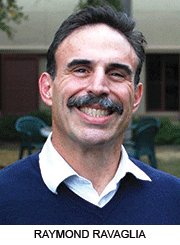 WITH THE PROLIFERATION OF educational technology, online courses, and a range of enrichment offerings, parents and educators are confronted with a bewildering array of options for fulfilling the academic needs of students. This challenge is amplified for those with international mindsets and looking for ways to ensure that their children are competitive with students worldwide.
WITH THE PROLIFERATION OF educational technology, online courses, and a range of enrichment offerings, parents and educators are confronted with a bewildering array of options for fulfilling the academic needs of students. This challenge is amplified for those with international mindsets and looking for ways to ensure that their children are competitive with students worldwide.
As the founder and former director of a number of online and pre-collegiate programs for students around the world, over the past 25 years I have often spoken with parents and educators about what they should be doing for students from early age. Their questions range from the innocuous, ‘How do I challenge my child so that he/she keeps learning outside the classroom?’ to the highly tactical ‘How do I maximize my child’s prospects of getting into a top college in my country or overseas?’ to a host of questions in between.
The most important advice I give to parents and educators alike is to foster a general love of learning and intellectual curiousity in their children and start this process early to develop children’s intellectual vitality — perhaps the attribute most sought after by universities, and also a trait that drives enduring academic performance. But how does one develop intellectual vitality?
The answer is not from duplicating work a student is already doing in school through tuition or online courses. While some parents are already suspicious of the traditional tuition approach, what they fail to realise is that many online courses and programs are essentially doing the same thing. It’s depressingly common to see good schools in India and elsewhere adopt assessment and enrichment programs not tested or benchmarked internationally, and which won’t improve their students’ intellectual vitality. Students with an eye on US college placements often enroll for online courses from the US because they’re described as ‘accredited’ or ‘Advanced Placement’. Yet, college admission authorities are more interested in evidence that a student can pick and choose intelligently from among options rather than “eat everything in sight”, as they know that overwork merely exhausts students.
A better approach to developing vitality, and cultivating student capability, is to draw lessons from the sporting world and look at how student abilities are nurtured and demonstrated through participating in competitions and training for them. The foundational skill students develop through participation in transnational friendly tournaments is ‘problem solving’, an invaluable skill that cuts across all domains and subjects.
While such contests are commonplace in geographical regions with a rich tradition of intellectual competition, in recent years as they have expanded worldwide, they are causing widespread confusion about the quality of content and richness of the digital medium. In other words, the quality of a competitive tournament is adjudged by the experience and ability of its organisers to assess students’ problem-solving skills, its academic pedigree, and the affiliation of the tournament, than by digital bells and whistles.
The AMT (Australian Math Trust) competitions in math and informatics, and the MAA (Mathematical Association of America) math competitions are examples of an international gold standard in this realm. Suitably adapted for the large and diverse Indian student population, such contests can play a critical role in developing problem-solving skills.
Of course as students begin to get a taste of intellectually competitive tournaments, they will inevitably want to pursue training courses and programs, many of which are online. As with any type of programs, they vary in price and quality. What we have found is that courses which work best are those in which students work closely with an instructor and other students, either online or offline with technology playing a facilitative role. The second best courses, and perhaps the least expensive, are those which provide students with excellent content and opportunity to learn through practice and review of worked-out solutions.
My simple message to educators and parents is stop worrying about the courses your students take and worry instead about what they’re actually learning. Problem-solving skills will help them survive most challenges in their journey to a good college and beyond. Bear in mind that no student ever became smarter or was admitted to a college because of completing a particular course or knowledge of a particular subject. In most cases, admission decisions are based on a variety of objectively measurable facts and subjectively measured impressions of students.
Objective criteria revolve around demonstrated capability for challenging oneself and doing well in meeting specific challenges. To this end, children should develop early and healthy appetite for problem solving, and willingness to demonstrate their problem-solving skills in competitions. Subjective criteria revolve around the issues of sound judgement, identifying a passion, and demonstrating relentless drive towards developing capability in a chosen area. After all, the important thing is not getting admitted to college, but being successful after being admitted, and in life itself.
(Raymond Ravaglia is the founder of the Stanford University Online High School, and former associate dean and director of Stanford University Pre-Collegiate Studies)